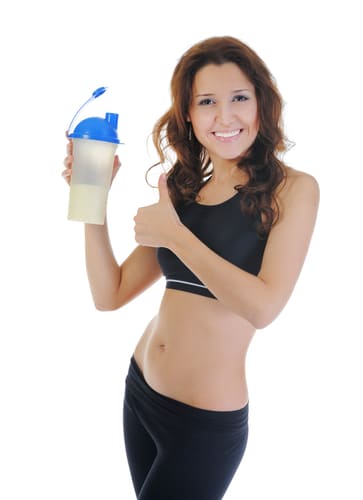
Artificial Sweeteners
Sucralose is an artificial sweetener often used in weight loss products. This sweetener is created by substituting several groups of atoms found in sugar and replacing them with chlorine.
Several studies have outlined the effects of all artificial sweeteners on weight loss. They have proven to stimulate appetite, increase sugar cravings, and promote binge eating. A sweet taste on the tongue causes the body to crave the calories it expects from sweet food.
Eating foods that have a sweet taste intensify your desire for sweets. The idea that eating something sweet–sweetened either naturally or artificially–will cure your sweet tooth is a myth. Sweet foods do the opposite. They boost your cravings for more sweets.
Fructose
Several items include fructose in addition to other sweeteners. Some even put sugar on the label as “evaporated cane juice”. The FDA isn’t a fan of this practice since it deceives people into believing that this sweetener is healthy. It isn’t. Evaporated cane juice is the same as sugar.
Fructose alters the way your brain recognizes hunger. There are two hormones that regulate appetite: leptin and ghrelin. Leptin tells your brain when it’s time to stop eating, while ghrelin sends the brain feeding signals.
Fructose doesn’t stimulate leptin, so your brain won’t get the message that it’s time to stop eating. It also doesn’t inhibit ghrelin, so the brain still receives messages to keep eating even after excess calories have been consumed.
Artificial and Natural Flavors
Natural flavors aren’t natural. For example, “natural apple flavor” on the ingredient list for a box of muffins doesn’t mean that apple was used to flavor that product. The flavor was extracted from an apple, then combined with other chemicals to produce what is referred to as natural flavor.
An artificial flavor is made from a chemical combination that doesn’t include the original food for flavoring.
Highly palatable foods contain Intense flavors that are not found in nature and spur your perceived need for more high-calorie foods.
Wheat
Wheat is a popular ingredient in processed foods. It intensifies appetite and packs on body fat.
Wheat’s polypeptides travel to opiate receptors in the brain causing a euphoric effect. This grain is addictive, and symptoms of withdrawal are often experienced when it is removed from the diet. Wheat is an appetite stimulant. Research shows that 400 calories per day are naturally cut from the diet when it is removed.
Wheat elevates blood glucose (sugar) levels. Soon after eating a wheat product, your blood sugar levels increase dramatically, which causes the fat-storing hormone insulin to enter the scene. Insulin takes the sugar and stores it into fat cells in order to bring blood sugar levels down to normal.
Once these levels are reduced, they often go below normal. This results in low blood sugar, which is also dangerous. In order to get your blood sugar back up to normal, appetite is increased. Cravings surge for the very foods that caused the original blood sugar spike.
Hydrogenated Oils
Hydrogenated oils are used to extend shelf life. These oils are artificial trans fats. The label doesn’t indicate that trans fat is contained in the product because the amount falls below one half of a gram. Laws don’t enforce the labeling of trans fats when they meet this requirement.
Eating hydrogenated oils every day from several sources leads to a substantial amount of trans fat. This raises your cardiovascular disease risk and works against your weight loss efforts.
The packaged foods that are essential for participation in diet programs contribute to declining health and increased body fat. Ingredients that trigger weight gain, stimulate the appetite and generate cravings put the consumer in a constant battle with the scale. A traditional selection of food composed of meats, vegetables, and fruit leads to natural, healthy weight loss.
Resources:
“Food.” Guidance for Industry: Ingredients Declared as Evaporated Cane Juice; Draft Guidance. FDA. Web. 18 Apr. 2012.
Yang, Qing. “Gain Weight by “going Diet?” Artificial Sweeteners and the Neurobiology of Sugar Cravings.” Yale Journal of Biology and Medicine 83.2 (2010): 101-08. Print.
Avena, Nicole M., Pedro Rada, and Bartley G. Hoebel. “Evidence for Sugar Addiction: Behavioral and Neurochemical Effects of Intermittent, Excessive Sugar Intake.” Neuroscience & Biobehavioral Reviews 32.1 (2008): 20-39. Print.
Sclafani, A., and K. Ackroff. “The Relationship between Food Reward and Satiation Revisited.” Physiology & Behavior 82.1 (2004): 89-95. Print.
Related Articles By Cathe:
Ingredient in Processed Foods Linked with Weight Gain and Metabolic Syndrome

